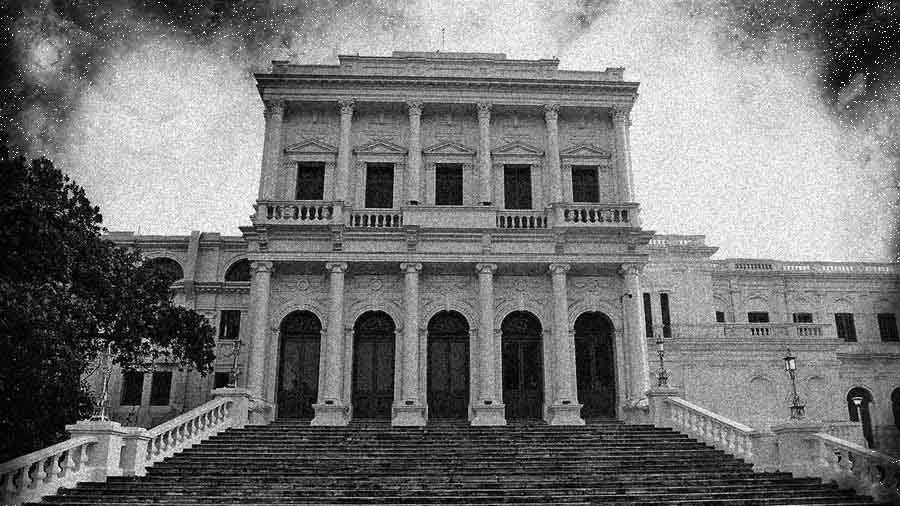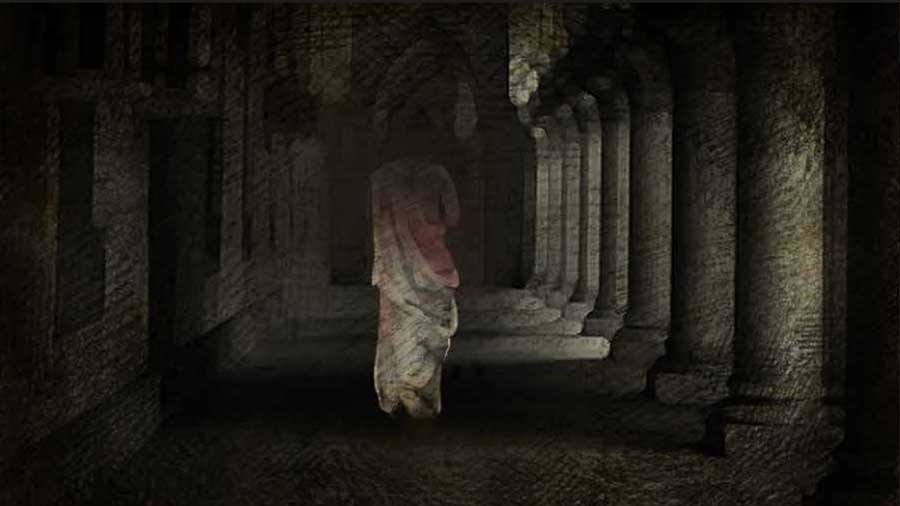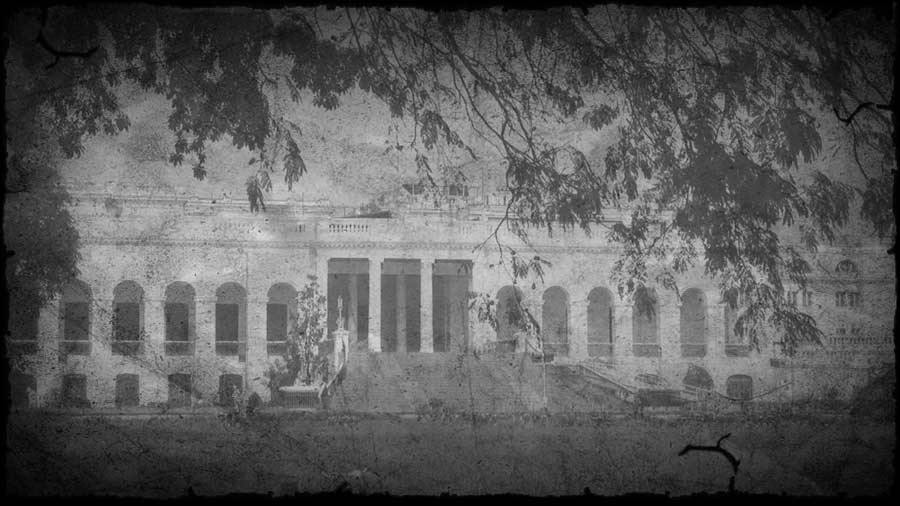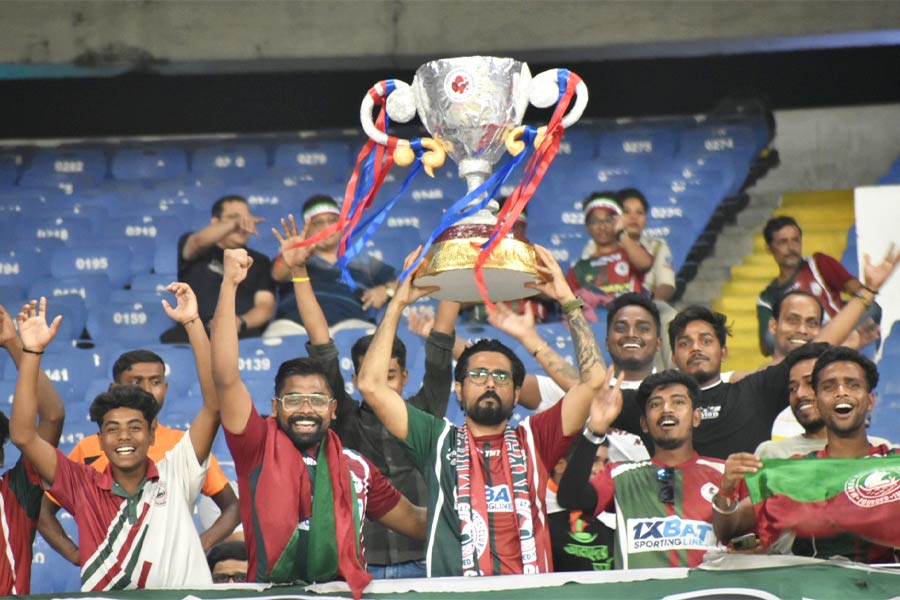“Imagine you completed this interview, filed your piece and found out after that I was dead two weeks before you had spoken to me,” says Riksundar Banerjee, a PhD in ghosts (quite literally!) and author of some of the most compelling ghost literature in India. Banerjee’s nerve-tingling counterfactual seems even more eerie as the sunlight streaks through the window and lights a part of his face, with the other half in shade.
Speaking to My Kolkata about his new book, Haunted Places of India (published by Aleph Book Company) at his Bansdroni residence, Riksundar uncovers the secrets behind ghosts, ghostliness and why both matter. Edited excerpts from the conversation follow.
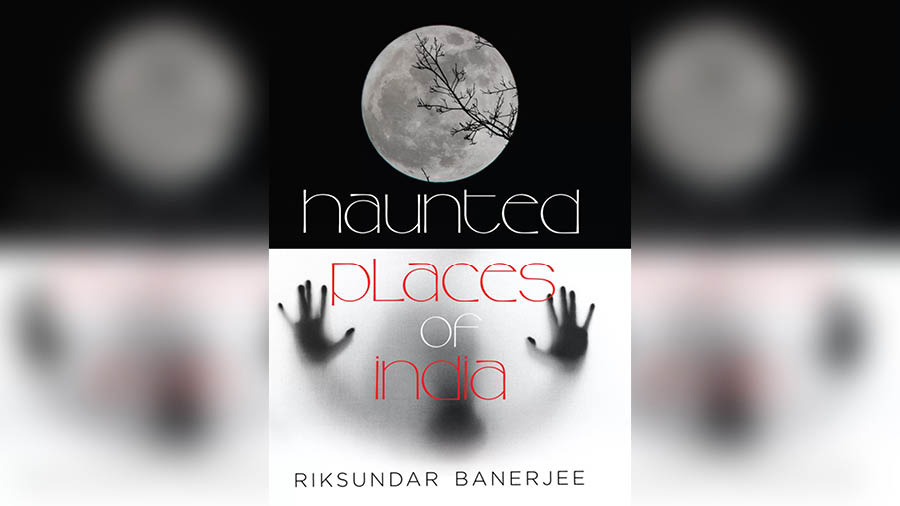
‘Haunted Places of India’ documents the diverse kinds of horror in India
Aleph Book CompanyMy Kolkata: How did the idea of your new book come about?
Riksundar Banerjee: I wanted to write a book that captures the diversity of horror in India, the different kinds of fear that people undergo and experience. To that end, I had dozens of stories, out of which I picked 40, including 25 stories that I have individually been a part of. There are stories that have been composed after speaking extensively to people on the ground, journalists and police officers related to certain cases. There are also stories about very old places that have been researched upon with references from books and websites. In writing this book, I have tried to avoid stories that do not represent a particular kind of fear and give in more to populist tropes of horror. Which is why you won’t find anything about the Bhangarh Fort (in Rajasthan) here.
When and how did you develop an interest in haunted stories and experiences?
I was a student of Bengali literature at Jadavpur University, after which I completed my PhD from the University of Burdwan, where my topic was the tradition and the transformation of ghosts in literature. I’ve always been interested in ghost stories, particularly in understanding their superstructure and deep structures. The superstructure often changes depending on the country and the context, but the deep structures, which are essentially the themes of oppression, revenge, belief or the lack of it, endure across space and time.
‘A ghost is something that’s frozen in time, that can’t escape’
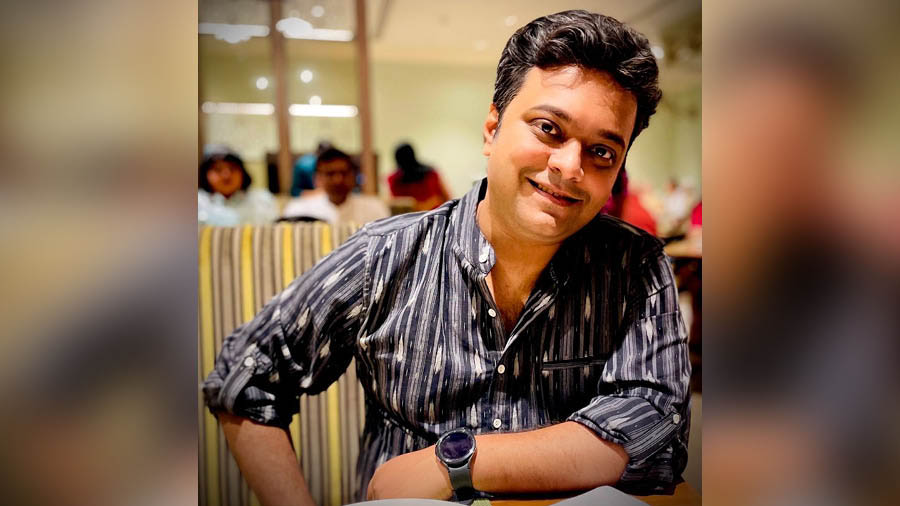
Ghosts have become more individualised and anthropomorphised since the two World Wars, says Riksundar
Riksundar BanerjeeSince you have written extensively on the haunted, do you believe in ghosts, spirits or the paranormal yourself?
I believe that there are no ghosts, but there is ghostliness. A ghost is something that’s frozen in time, that can’t escape. Haunted stories evolve because of history, context and value systems. Ghosts have become more individualised and anthropomorphised since the two World Wars, as information about more and more people dying or going missing has surfaced. But what is ghostly is mostly situational, where horror can be allowed to act as a metaphor, to suggest something fundamental about life. This situational aspect is exploited in detective stories to build a sense of anticipation. Ghost stories also do the same thing, except they also have the additional feature of illusion that’s missing in detective tales.
‘What’s ghostly about today’s times is that there’s a pair of eyes tracking virtually every move we make’
Does ghostliness also evolve over time, in keeping with changes in lifestyle and culture?
Most certainly. What was ghostly in the past is a reality today. Take the idea of Zoom or Skype calls. Some 15 or 20 years, speaking to a screen and hearing it talk back would’ve been the stuff of horror stories. Today, we do it as part of our regular lives. Then there are the numerous instances when we meet strangers for a few moments of transactions, be it with Zomato delivery personnel or Uber drivers. These are people who we hardly see, barely know and never hear back from. They slip in and out of our lives like ghosts. More than anything else, what’s ghostly about today’s times is that there’s a pair of eyes tracking virtually every move we make and everything we do. The surveillance mechanisms that come with modern technology know us better than we know ourselves. If that’s not ghostly, what is?
‘Kolkata accentuates ghostliness because of its colonial architecture and its communal diversity’
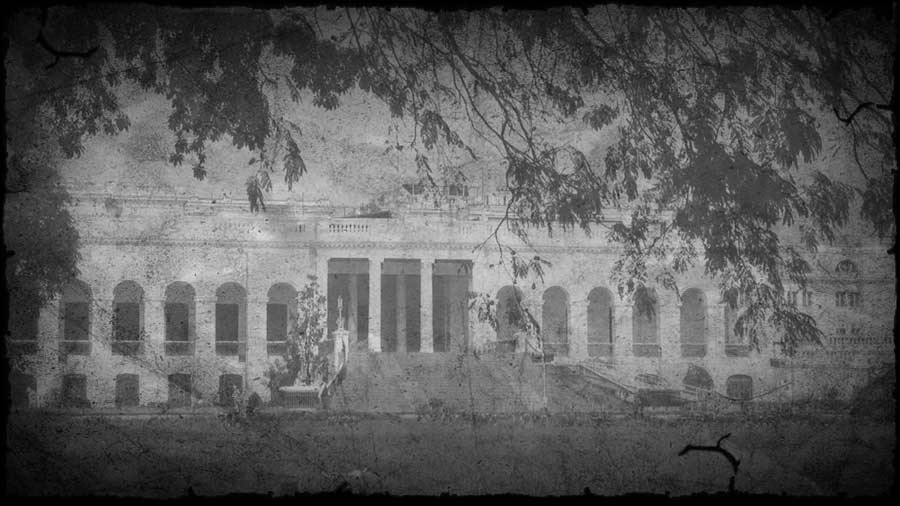
The ghost culture is the strongest in Bengal because Bengalis are more prone to imagination, brought up more on oral histories and stories, says Riksundar
TT archivesThere are several stories about Kolkata in your book, including the one about a fight involving Warren Hastings at the National Library. Why do you think so many ghost stories abound in Kolkata? What about Kolkata attracts so many ghosts?!
Kolkata does have a lot of ghosts and ghostly stories. Even in my first book, The Book of Indian Ghosts, there were 84 ghosts in total, and some 50 per cent of them were from Kolkata and West Bengal. For me, the ghost culture is the strongest in Bengal because Bengalis are more prone to imagination, brought up more on oral histories and stories. On top of that, Bengal has seen a lot of blood and death over the past century and more. From wars to Partition to riots to the Freedom struggle. That’s fodder for so many stories right there. Gradually, ghosts have become normalised in our language as well, particularly in the idioms we use in Bengali. As a city, Kolkata accentuates ghostliness because of its colonial architecture and also because of its communal diversity. Not many places will have cemeteries, graveyards and Towers of Silence (for the Parsi community) in such proximity.
‘Once an entire generation of social media users passes away, the likes of Facebook and Instagram will become islands of the (un)dead’
In 2019, you jointly presented a paper at York University in the UK (also featured by Bond University, Australia) called The Algorithm of Ghostliness. Tell us about the premise of that.
It’s a paper I co-authored with Raka Chowdhury, a software engineer by profession and my wife (she is also the illustrator for Riksundar’s books). The premise was that the influence of technology is increasing the ghostliness in our lives. Fake profiles, anonymity and the polarisation of spaces on digital and social media are making us live different simulations and versions of life. Moreover, the idea of potential digital immortality is scary. Imagine a person who’s dead in real life, but who’s still your Facebook friend. One day you find the green light beside their profile turned on, won’t that scare you? On a larger level, can someone really be dead on social media? This is a question that’ll become even more pertinent once an entire generation of social media users passes away, making the likes of Facebook and Instagram islands of the (un)dead.
‘One thing that’s fundamental to the ghost culture in India is the idea of oppression’
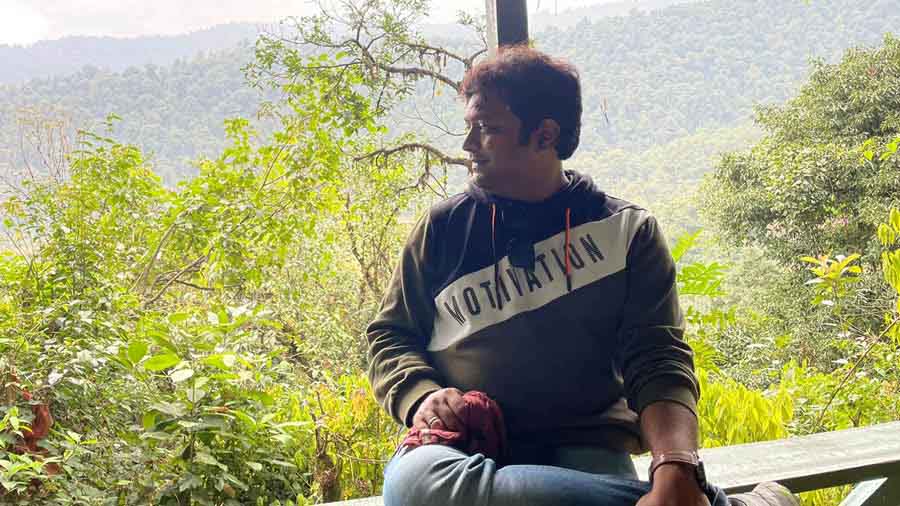
Wherever the Constitution of India has not been followed, ghosts have been born, argues Riksundar
Riksundar BanerjeeAs you mentioned earlier, your previous book, The Book of Indian Ghosts, is an authoritative account of the spirits and legends prevailing across India. Do you feel there is something intrinsic about Indians and Indian culture that leads us to believe in ghosts?
India’s socio-economic structure creates the necessary context for ghost stories, from big buildings to small hostel rooms to forests. Name it and we have a ghost story about it. One thing that’s fundamental to the ghost culture in India is the idea of oppression. So many stories emerge from realities involving oppression, be it murders, property disputes or everyday discrimination. In Uttar Pradesh, there’s a ghost called Daag, which apparently tortures members of a landlord or zamindar’s family if they don’t set aside a part of their harvest as a giveaway. It stems from the story of depriving labourers and not giving them their due in the past. Then there’s the Mashaan ghost in Shimla, who is said to eat children alive. In reality, this is a story that was manufactured to encourage people to dispose of the dead properly, especially dead bodies belonging to people from the lower castes. In Bengal, the concept of a female ghost as a fire-breathing monster persists in those places where women have been burnt alive because they could not pay sufficient dowry.
In other words, wherever the Constitution of India has not been followed, ghosts have been born. Out of a necessity to enforce the rights that every Indian should be entitled to.
Over the past few years, we have seen an upsurge in tourism based around haunted experiences in India. This is especially true of foreigners visiting the country. How do you feel about the consumerism underpinning haunted experiences?
I don’t have any issues with that. Horror tourism, or the business of ghosts, as it were, is fine. If anything, we don’t do a good enough job with it. If the British had a story to tell like we do in the National Library, of two Britishers involved in a duel and their ghosts living on, they’d be making millions through it! My contention is more to do with ghost-hunters, seemingly sensible and articulate people who buy ghost-hunting kits and “document” ghosts with all sorts of techniques and strategies. And then broadcast those online. What this does is cash in on irrational fear for the sake of cheap thrills, while undermining the context or reality behind ghost stories and their importance.
‘Just watch any horror film on mute and see how you feel!
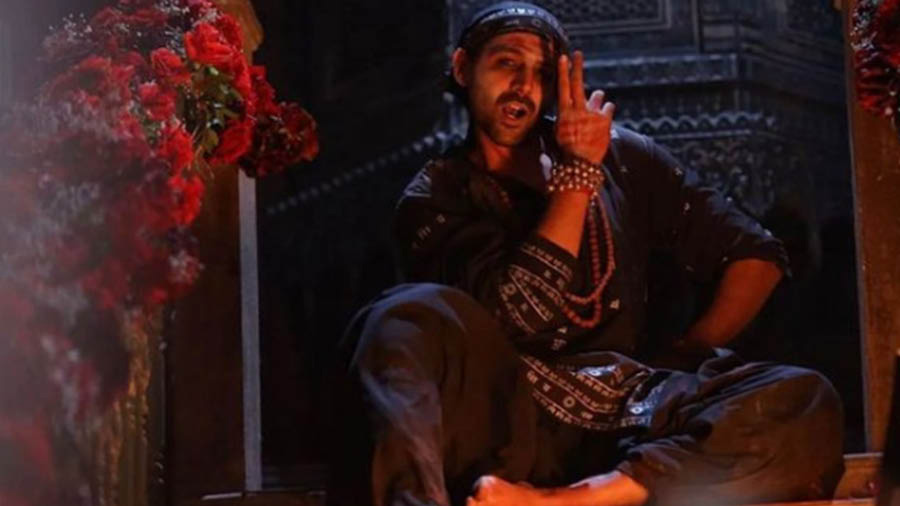
Kartik Aaryan in ‘Bhool Bhulaiyaa 2’, which made a case for ghosts as real, unlike its predecessor
What is your take on ghost stories on screen, especially the genres of horrex (horror and sex) and horror comedies that are coming thick and fast?
Most ghost movies work according to a set formula, chiefly when it comes to sound. To prove it, just watch any horror film on mute and see how you feel! Horror comedies are difficult to execute because striking the balance between the two aspects is difficult. Bhool Bhulaiyaa (2007) nails that balance and shows horror as psychosis, a perfect portrayal of ghostliness without a ghost. Then, last year, Bhool Bhulaiyaa 2 shows us that ghosts are real, after all. Maybe that tells us something about where India is going!
As for horror and sex, the underlying assumption behind most of these films is that sex and sin are closely related. So, the horror that is cultivated is invariably exercised as an instrument of punishment against promiscuity, or even the basic exercise of sexual agency.
‘For me, every ghost story is essentially a human story’
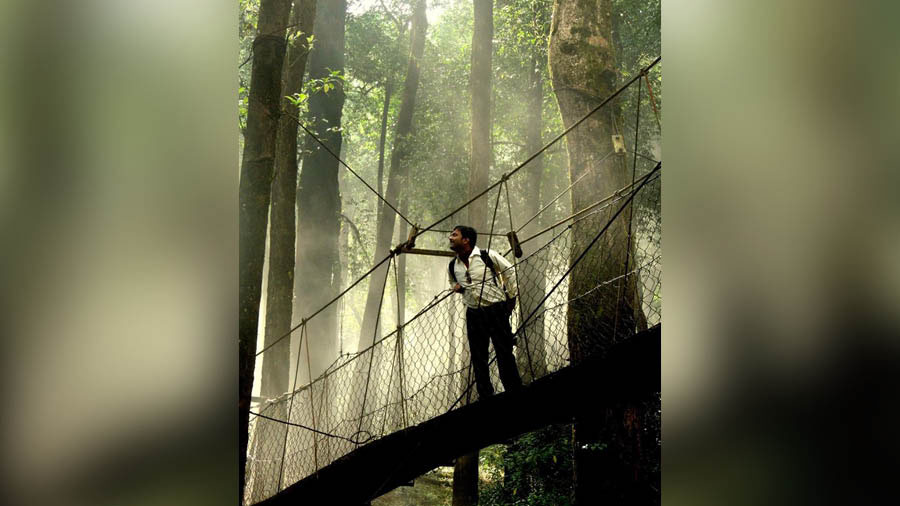
Most ghost stories are not about sight, but about activating all the other senses, explains Riksundar
Riksundar BanerjeeWhat has been the most surreal or haunted experience of your life so far?
Strange as it may sound, I’ve never really had such an experience myself. Maybe because you need a certain element of suspension of disbelief to experience these things. But I’ve heard several people share their stories with me, many of them with so much sincerity that I’ve genuinely thought about the potential of a ghost actually existing. But I’m yet to be convinced, for the simple reason that to scientifically believe something, I have to see it. And most ghost stories aren’t about sight, they’re about activating all the other senses, animated by our imagination. That’s why, for me, every ghost story is essentially a human story.
A good example of this is a story I heard from a reputed psychologist, who had a patient working at an IT company in Salt Lake’s Sector V. He was extremely bright in school and college and spent a large portion of his life in the limelight. But the drudgery of corporate life made him just another face in the crowd. Every evening on driving back from work, he’d notice someone sitting at the back of his car through the mirror. Sometimes he’d even talk to that someone. Who was that someone? It was actually someone he imagined into existence because of the deep desire to be seen. Perhaps even to be understood. Sometimes ghosts exist because we want them to.
‘Ghosts are becoming more relatable than gods’
Lastly, do all of us need ghosts? Is it morally and/or psychologically helpful to believe in them?
I suppose we do. Sometimes we need ghosts to say things humans can’t say, to be radical revolutionaries in their own ways. Sometimes we need ghosts to fantasise and indulge in wish fulfilment. Sometimes we need ghosts because we can’t get over a loss, and would rather the ghost of a loved one always kept watch over us. Ultimately, we need ghosts because of the awareness of our own mortality. It’s much easier to believe that something lives on and endures even when we’re gone. That all of this isn’t fundamentally meaningless. That’s also what, in part, gives rise to god. Which is why so many people who believe in ghosts also believe in god. Having said that, as organised religion retreats, ghosts are becoming more relatable than gods. With every passing day, we’re realising that we can’t be gods, but we can be ghosts.


